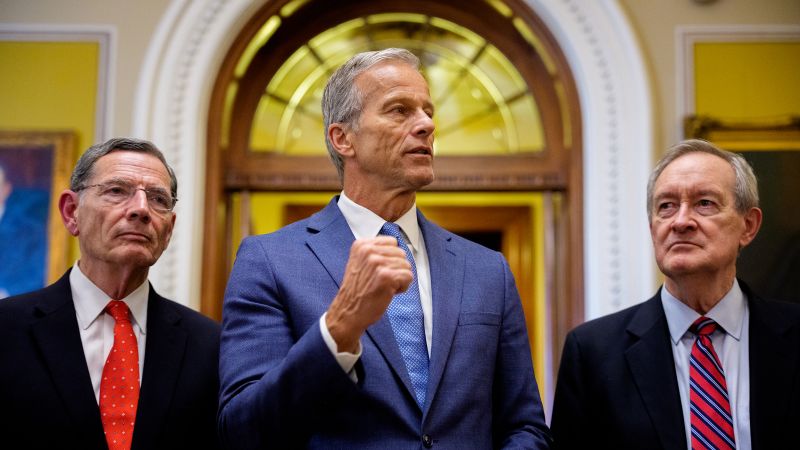The massive tax and spending bill, dubbed the “One Big Beautiful Bill Act” by Republicans, is poised to affect nearly every American demographic. Passed by the Senate with Vice President JD Vance’s tie-breaking vote, the bill extends President Donald Trump’s first-term tax cuts, funds his border wall vision, and offsets costs with cuts to federal support for social safety nets. As lawmakers rush to meet Trump’s July Fourth deadline, the bill’s implications are becoming clearer.
The announcement comes as both the Senate and House work to reconcile their versions of the bill, which differ significantly. The Senate’s version, now under scrutiny, could lead to sweeping changes in Medicaid, food assistance programs, and tax policies. Here’s a closer look at how different groups might be affected.
Impact on Medicaid and Healthcare
For Medicaid enrollees, the bill introduces a new work requirement for certain able-bodied adults aged 19 to 64. This mandate also applies to parents of children aged 14 and older, potentially causing millions to lose coverage. The Congressional Budget Office (CBO) estimates that nearly 12 million more people could be uninsured by 2034 due to these provisions.
Meanwhile, hospitals warn that Medicaid cuts could force closures, especially in rural areas, limiting services and reducing staff. Rick Pollack, CEO of the American Hospital Association, cautioned,
“The real-life consequences of these reductions will result in irreparable harm to access to care for all Americans.”
Food Assistance and SNAP Changes
The bill also expands work requirements for the Supplemental Nutrition Assistance Program (SNAP), affecting older enrollees, parents, veterans, and other vulnerable groups. States may have to shoulder more costs, potentially leading to tightened benefits and eligibility. The future growth of food stamp benefits is also set to be limited.
These changes represent a significant shift from previous policies, raising concerns among advocacy groups about increased food insecurity.
Tax Policy Overhaul
On the tax front, the bill extends the 2017 Trump tax cuts, offering continued relief to many taxpayers, though some may not notice the changes. The Tax Policy Center notes that while all households would see tax reductions, 60% of the benefits would go to the top 20% of earners.
Senior citizens, however, would receive a temporary $6,000 boost to their standard deduction. The bill also introduces a “baby bonus” pilot program, offering a $1,000 nest egg for babies born between 2025 and 2028, reflecting a blend of fiscal conservatism and social investment.
Broader Economic Implications
The bill’s passage could increase the national deficit by $3.3 trillion over the next decade, according to the CBO. Critics argue that this could lead to higher interest rates, affecting mortgages, car loans, and credit card payments. The legislation also raises the debt ceiling by $5 trillion, allowing for more government borrowing.
Elon Musk, among others, has voiced strong opposition, particularly over the abrupt end to electric vehicle tax credits, which he argues could harm future industries.
Conclusion and Next Steps
As the bill moves towards finalization, its wide-ranging impacts continue to spark debate. From healthcare to tax policy, the consequences of this legislation will be felt across the nation. Lawmakers now face the challenge of reconciling the Senate and House versions to meet the looming deadline, with the potential for significant political and economic fallout.
About The Author
 Waffle House Removes Egg Surcharge Amid Falling Prices
Waffle House Removes Egg Surcharge Amid Falling Prices Eco-Friendly Tableware: A Sustainable Solution to Single-Use Plastics
Eco-Friendly Tableware: A Sustainable Solution to Single-Use Plastics Study Reveals Adult Moths Face Greater Predation Risks Than Caterpillars
Study Reveals Adult Moths Face Greater Predation Risks Than Caterpillars Cities Sue Trump Administration Over Obamacare Changes Impacting Millions
Cities Sue Trump Administration Over Obamacare Changes Impacting Millions Coco Gauff’s Shocking First-Round Exit at Wimbledon 2025
Coco Gauff’s Shocking First-Round Exit at Wimbledon 2025